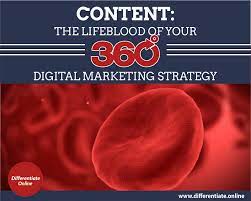
Content Marketing the Lifeblood of Marketing Digitally
In the past, marketing required(Buy Facebook Likes) a lot of interruptions. To spread the word about a brand, service, or brand, marketers and advertisers would post advertisements in newspapers, during music and TV shows on the radio, or on billboards and buildings, hoping to grab an individual’s attention. At the same time, they were engaged another time.
Content-Marketing
Other efforts were less obvious such as paying celebrities to wear a particular brand or presenting a beloved actor in a movie wearing one particular type of soap for dishwashing.
Other efforts were more akin to today’s content marketing strategies, such as educational brochures placed on the front desk, checklists for free delivered to your home, or an article sponsored by a company published in a popular magazine.
Its Rise and Decline Content Farm
Then the internet came along, and the internet became a source of inexpensive and quick content creation.
Businesses realized that they could draw new customers by responding to their questions rather than creating costly printed materials or disrupting their content flow. So hired content farms to produce low-cost and low-quality content in large quantities.
Many companies employed shady SEO methods to “hack” their way into the process to ensure that their content that was not helpful would appear on the search results page.
However, Google realized this and began to reward high-quality content while punishing the garbage. Today marketers are facing a new problem that presents an opportunity. They can choose the media they would like to consume and which ones they prefer to avoid.
The solution? Content marketing.
What is Content Marketing?
Content marketing is the type of media that consumers would like to consume. As opposed to interrupting a television show, say it is the television show.
Content marketing doesn’t have to be limited to only one type of media as it covers a variety of channels and formats and is being developed every day.
Content marketing may be:
- Blog
- Loose-leaf printed material
- The television show, movie, or YouTube episode
- Podcast
- Video game
- Book
- Facebook, Instagram, or LinkedIn publish
- Quiz or other interactive content
Your Content Marketing Strategy
The content strategy you choose to implement, just like any other strategy for digital marketing, must be tied to the larger goals of your business. Are you launching a brand new product.
Note: Click here
Expanding to the market of a new customer, or focusing on customer retention and increasing the value of customer lifetime? Determine your company’s goal, and you’ll be able to define the foundation of your strategy for content marketing.
Consider the other topics relevant to your industry you’d like to be known for and tie them back to your business’s primary purpose. If you’re nurseries looking to build brand recognition, Your broad subjects could include “landscaping,” “vegetable gardening,” “annuals,” and “perennials,” for example.
Before you dive deep into the details of what you’ll be creating, you’ll need to invest some time finding out and getting to know your intended viewers. Remember that it’s focused on the people who consume the content, not your brand. If your content isn’t engaging, informative, or educational, it’s not efficient content marketing.
Understanding the people you want to reach
Determining who your audience is and tailoring your content for them is one of the most challenging aspects of effective content marketing, but it is the most important. There are numerous methods of gathering details about your audience’s preferences, beliefs, and issues:
Contact the sales team. Regardless of how large or small, sales teams will interact with potential customers more frequently than other teams. They’ll know the most frequently asked questions, objections, and issues your leads face and what motivates buyers to purchase.
Learn from the information.
Make a Google Analytics account for your site to understand visitors’ activities, which pages they like, and what keywords are driving users to your site.
Use Google Search Console to conduct basic keyword research at no cost, or choose an expensive service such as SEMrush or Moz for more extensive capabilities.
Conduct your primary research online. Social media behavior by users on forums, review sites, and review sites can provide a wealth of information about your target audience’s issues. It is also an excellent method for brainstorming ideas for content.
Contact them directly. Content Marketing Institute states that although only 43 percent of B2B content marketing speaks directly to their customers.
Open dialogue is among the most efficient ways to gather accurate and up-to-date information. Conduct a panel discussion, focus group, survey, or even contact the individual customers for feedback directly.
Once you’ve identified the data for your market of choice, you can create personas of your customers for your team of content writers to refer to. Your designers and writers will appreciate this.
But having a precise definition of the personas will direct the next stage of your content marketing strategy. Selecting what types of content to create.
Note: https://postingpall.com/


